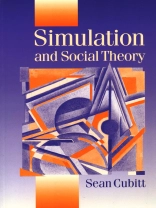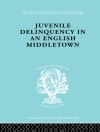This insightful book is the first to critically examine the ideas of some of the key thinkers of simulation. It addresses the work of Baudrillard, Debord, Virilio and Eco, clarifying their arguments by referring to the intellectual and social worlds each emerged from distilling what is important from their discussions. The book argues for a critical and selective use of the concept of simulation.
Like the idea of ideology, simulation is a political theory, but it has also become a deeply pessimistic theory of the end of history and the impossibility of positive change. Through a series of reflections on the meaning of theme parks, warfare and computer modelling, Sean Cubitt demonstrates the strengths and limitations of the simulation thesis.
विषयसूची
Introduction
The Long Term
PART ONE: THEORIES
Values, Signs and Subjects
Technology, Information and Reason
The Poetics of Pessimism
Making Sense of Simulation
PART TWO: CASES
Disney World Culture
War in the Persian Gulf
Working with Computers
Conclusion
Pessimism of the Intellect, Optimism of the Will
लेखक के बारे में
Sean Cubitt is Professor of Film and Television at Goldsmiths, University of London; Professorial Fellow of the University of Melbourne and Honorary Professor of the University of Dundee. His publications include Timeshift: On Video Culture, Videography: Video Media as Art and Culture, Digital Aesthetics, Simulation and Social Theory, The Cinema Effect and Eco Media. He is the series editor for Leonardo Books at MIT Press. Current research is on the history and philosophy of visual technologies, on media art history and on ecocriticism and mediation.












